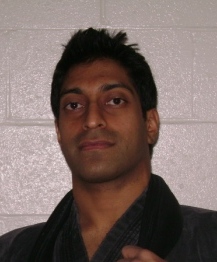




How many times have you asked yourself, a classmate or a DG staff this question?
It's a pretty interesting question, and it makes sense. Let's face it, sometimes you just "click" with certain instructors more than others. Just like you are attracted to certain personality types (and certain types to you) more than others.
That makes sense, we need to find instructors, classmates and training partners that we jive with, both in terms of personality and philosophy. That way we'll be in the best environment for learning, right?
Wrong.
I'll be honest. You need to get over it.
This goes for kids and adults (but mostly adults, since the kids' parents are making sure the get to classes).
You are going to have an affinity for some instructors and training partners more than others. That's not going to go away and I'm not going to change that. But, your primary concern needs to be about the community at large. Does the community jive with your philosophy and values?
Yes?
Good.
Now back to you.
Being choosy about which instructor is teaching on a particular night is at best looking for extrinsic motivating factors in your training and at worst just making excuses to skip class and not train.
There are only seven days in the week. In most cases, you need to take class two to three times per week in order to reach your goals.
Martial Arts and Kettlebell training can be hard at times, admittedly "not-fun". Your energy and motivation levels may wane do to either biological, neurological, or psychological factors, or some combination there of. It may be really stinking hot outside. You may have had a long day. You might be tired. It maybe someone other than your favorite instructor teaching.
These are all excuses.
Only you can put the time in, only you can do the work.
Only you can reach your goals and succeed.
External motivation works (the carrot or stick approach) for a time. But to keep going, we need something more.
For kids, we can keep this simple. They need to develop the discipline to follow the plan, attend classes, work hard and do their best even when the "situation" is not ideal (not their favorite instructor, best friend isn't in class, friends/siblings are playing video games, etc). We want them to prepared for the future: they may not always have teachers, bosses, classmates, and teammates that they "like" but still have the ability and maturity to work together and be successful.
For adults, it is a little more complex. We have more leeway to control our environment especially when it comes to our fitness and health. All to often, that "control" is to not do it. (make excuses).
So how do we, as "grown ups", find the intrinsic motivation that we need and not just rely on external factors?
Daniel Pink, author of "Drive ", has distilled the source of intrinsic motivation into three things: Autonomy, Mastery and Purpose.
", has distilled the source of intrinsic motivation into three things: Autonomy, Mastery and Purpose.
Let's quickly break each of these down as they pertain to Martial Arts, Kettlebell and Physical Training in general.
Autonomy - "Freedom from external control or influence, independence" -- In training we need to realize that we are not depending upon the instructor or classmates to "have a good class" or "get a good workout". We get out what we put in. It's on you to do the swings, do the kicks, hit the bag, do the pushups and work through the "pain". (note: the pain of effort is very different than the pain of injury). Nobody else can do this work for you, even if they are your favorite instructor or partner and are right there next to you cheering you on, motivating you, pushing you farther...it's still on you do get it done.
Mastery - "Comprehensive knowledge or skill in a subject or accomplishment" -- This is my favorite part of training. I always start on the subject of mastery with this common refrain: an expert is just someone who is better (has mastered) the basics. This is the crux of our martial arts philosophy as well as our system of Kettlebell training....getting better at the basics. And then, from that foundation we can increase the robustness, variety, and enjoyment in training. We keep practicing "it" in order to get better at "it" all the while knowing that the dedication, and joy, of said practice propels us towards our goals.
Purpose - "The reason for which something is done or created or for which something exists" -- This final piece is of course the most important and yet the most difficult for us to enunciate. We do know this, your purpose for training has nothing to do with who the instructor is or who else is in class. You started your training journey for a reason. Maybe it was to get in shape, lose weight, learn self-defense, get a great workout, or build confidence. When you feel the excuses creeping in, ignore them, and remind yourself of your purpose.
I'll leave you with two more things.
1 -- 90% of your success is showing up.
2. -- After all of this talk of intrinsic motivation and autonomy, remember that martial arts or kettlebell training is not a "team sport" ... but it IS a group effort. Remember the notion of autonomy in training: you get out what you put in. That goes for the group as well. You get out of the group (the community) what you put into the group.
Sincerely,
Somnath Sikdar
Master Instructor
Dragon Gym


 It comes down to self-identity, how you define that identity and why you are emotionally attached to that identity. It is composed of how we assess ourselves (and how we think how others assess us) on a variety of attributes, some more tangible than others: our job, our education, our hobbies, our skills and abilities, our physical appearance, our relationships, our past experiences and our future expectations.
It comes down to self-identity, how you define that identity and why you are emotionally attached to that identity. It is composed of how we assess ourselves (and how we think how others assess us) on a variety of attributes, some more tangible than others: our job, our education, our hobbies, our skills and abilities, our physical appearance, our relationships, our past experiences and our future expectations.